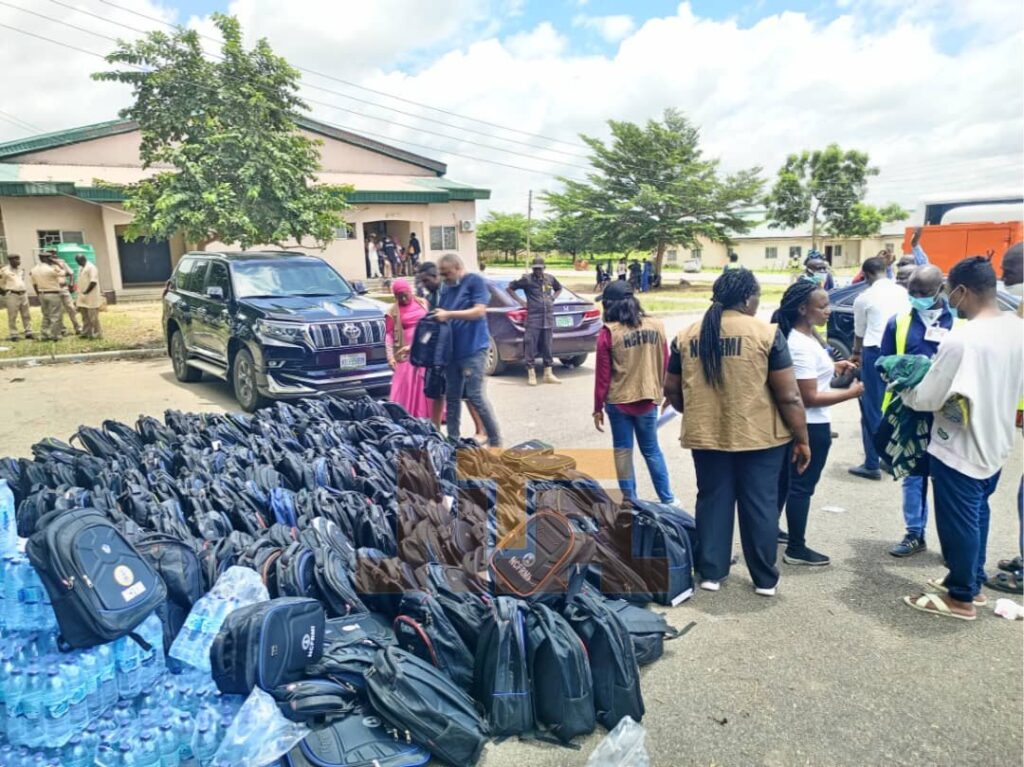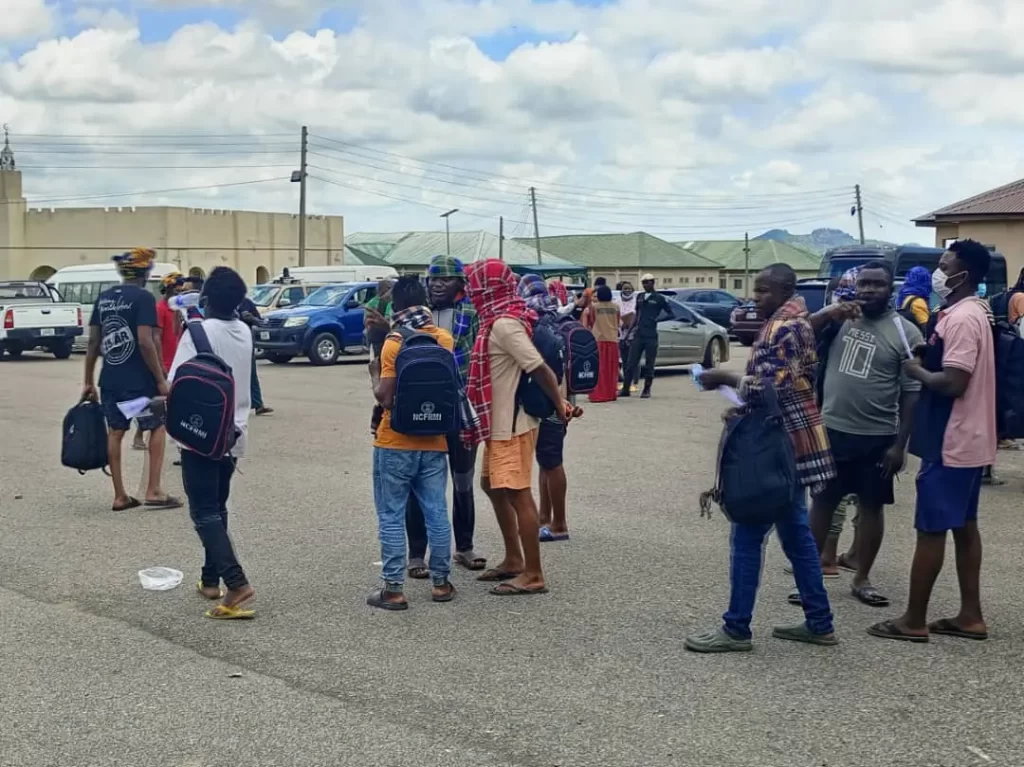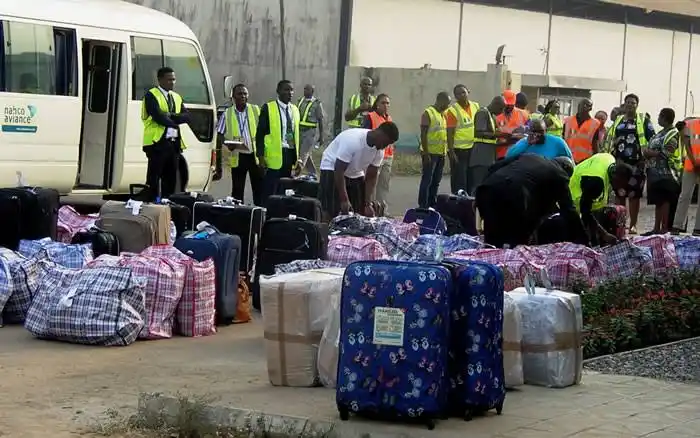Four hundred Nigerian citizens deported from the United Arab Emirates (UAE) arrived at the Nnamdi Azikiwe International Airport in Abuja on Wednesday, according to a report by the Nigerian Television Authority (NTA).

The group of deportees, comprising 90 females and 310 males, was received by a coalition of government agencies. Officials from the Office of the National Security Adviser led the reception, working in collaboration with the National Commission for Refugees, Migrants, and Internally Displaced Persons, the National Agency for the Prohibition of Trafficking in Persons (NAPTIP), and the National Emergency Management Agency (NEMA).
This mass deportation occurs against the backdrop of complex diplomatic relations between Nigeria and the UAE:
Visa Ban Context:
The UAE imposed a visa ban on Nigerian citizens nearly two years ago, stemming from various diplomatic disputes. A key issue involved Dubai’s Emirates Airline halting flights to Nigeria after the Central Bank of Nigeria was unable to remit an estimated $85 million in revenue to the UAE.

Recent Developments:
In June, following several rounds of negotiations, the Nigerian government assured its citizens that the visa ban would soon be lifted. Concurrently, it was announced that Nigeria had paid 98% of the $850 million owed, signaling progress in resolving the dispute.
In July 2024, the UAE government announced the immediate lifting of visa restrictions on Nigerians, marking a potential turning point in bilateral relations.
Previous Repatriation:
This recent deportation follows a separate repatriation of 190 Nigerians from the UAE in July 2024, as reported by PUNCH Online.
The arrival of these 400 deportees raises questions about the ongoing implementation of the newly restored visa privileges and the broader state of Nigeria-UAE relations. It also highlights the complexities of international labor migration and the challenges faced by Nigerian citizens abroad.

As both nations navigate this sensitive diplomatic landscape, the focus now turns to the reintegration of the returned citizens and the potential for improved bilateral relations in the wake of the lifted visa restrictions.
The Nigerian government has not yet released an official statement regarding the specific circumstances of these deportations or any planned measures to address the situation of Nigerian nationals in the UAE.
This event underscores the ongoing challenges in Nigeria-UAE relations and the broader issues of labor migration and diplomatic negotiations in an increasingly interconnected global economy.



